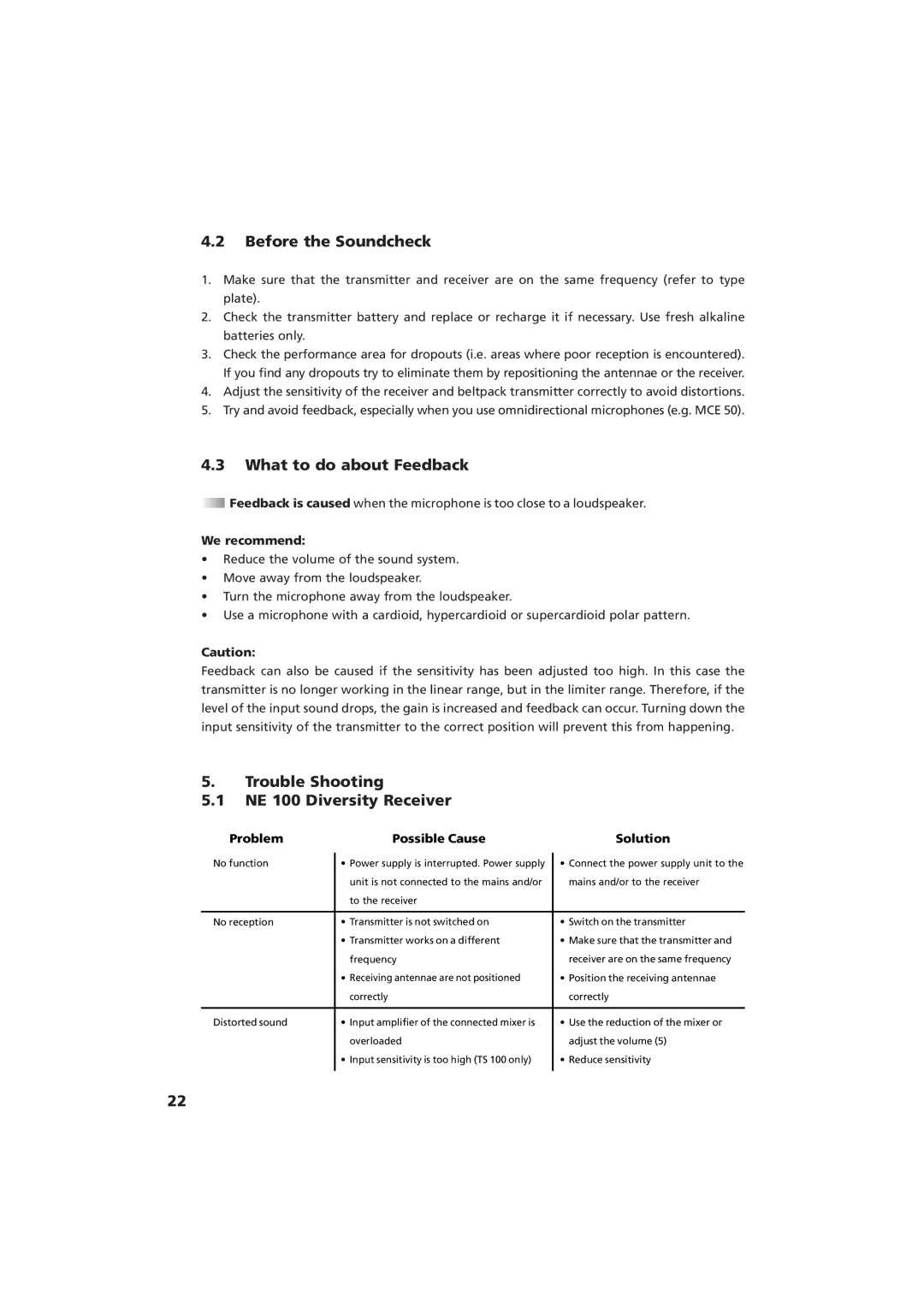Opus 100 specifications
The Beyerdynamic Opus 100 series represents a remarkable entry into the world of professional audio equipment, specifically designed for musicians, sound engineers, and content creators. This versatile microphone series is distinguished by its superior sound quality, robust construction, and innovative features, making it an excellent choice for diverse applications such as live performances, studio recordings, and broadcasting.One of the defining features of the Beyerdynamic Opus 100 is its dynamic microphone technology. Utilizing a moving-coil design, these microphones capture audio with high sensitivity and clarity, ensuring that vocals and instruments sound true to life. The Opus 100 series is also equipped with a frequency response tailored to enhance vocal presence and detail, achieving an even and natural sound across the spectrum. This makes them particularly suitable for capturing nuances in both singing and speaking scenarios.
The Opus 100 boasts impressive noise handling capabilities, thanks to its cardioid polar pattern. This directional feature ensures that the microphone picks up sound primarily from the front while effectively rejecting ambient sounds and background noise from the sides and rear. This characteristic is invaluable for live performances, where stage noise can be a significant concern. It allows performers to attain a cleaner sound without unwanted interference, resulting in a polished audio experience.
Additionally, Beyerdynamic has incorporated advanced technology in the Opus 100 series, including a high-output generator and low self-noise design. These features mean that the microphones can operate effectively in various environments, from loud venues to quieter studio settings, without sacrificing audio fidelity. The materials used in the construction of the Opus 100 are also noteworthy; they are designed to withstand rigorous use, ensuring durability and longevity.
Another highlight of the Opus 100 series is its versatility. These microphones come in different models, catering to various needs—whether it's for vocals, instruments, or as part of an ensemble. The user-friendly design means that even those new to audio recording can achieve professional-grade sound with ease.
In conclusion, the Beyerdynamic Opus 100 series stands out as a prime choice for anyone looking to elevate their audio quality. With its dynamic technology, cardioid polar pattern, and robust construction, it offers exceptional performance in a wide range of situations. Whether you're a seasoned professional or an aspiring artist, the Opus 100 series is equipped to deliver high-quality sound that meets the demands of modern audio production.
